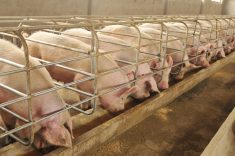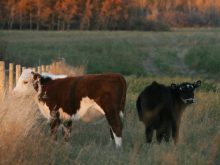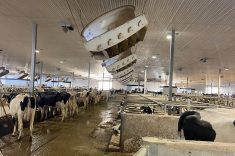Three different cattle sectors are joining to streamline national identification programs.
Beef and dairy, along with the Quebec beef and veal industries, are working to establish a reasonably priced, efficient and accurate means to trace their animals back to their herds of origin by 2000.
The Canadian Cattle Identification Agency is developing an approval process for acceptable tags and distributors for producers.
The identification is needed for animal health and food safety purposes if there is a disease outbreak or human health problem.
“We’re joining our forces to develop a national data repository,” said agency manager Julie Stitt.
Read Also

VIDEO: British company Antler Bio brings epigenetics to dairy farms
British company Antler Bio is bringing epigenetics to dairy farms using blood tests help tie how management is meeting the genetic potential of the animals.
They will gather health information and help people who want information from packing plants, which is not widely available.
By working together they can ensure each sector is using unique numbers and that the system is accepted worldwide. If there is a national strategy in place, it is easier to get federal money.
“Working together we can make sure we’re not reinventing the wheel as far as tag trials and working with the packing plants to retrieve information,” she said.
The Canadian dairy sector introduced identification programs in 1995. So far, 27 percent of producers have signed on to the voluntary program.
Quebec has its own programs using eartags with printed bar codes.
Mandatory identification was implemented for milk-fed veal calves in 1996. The Quebec feedlot sector moved into an identification program in 1997.
The government is drafting legislation to make it mandatory to identify all cattle back to their original herds.
Part of this mandatory system is necessary for their farm stabilization programs.

















